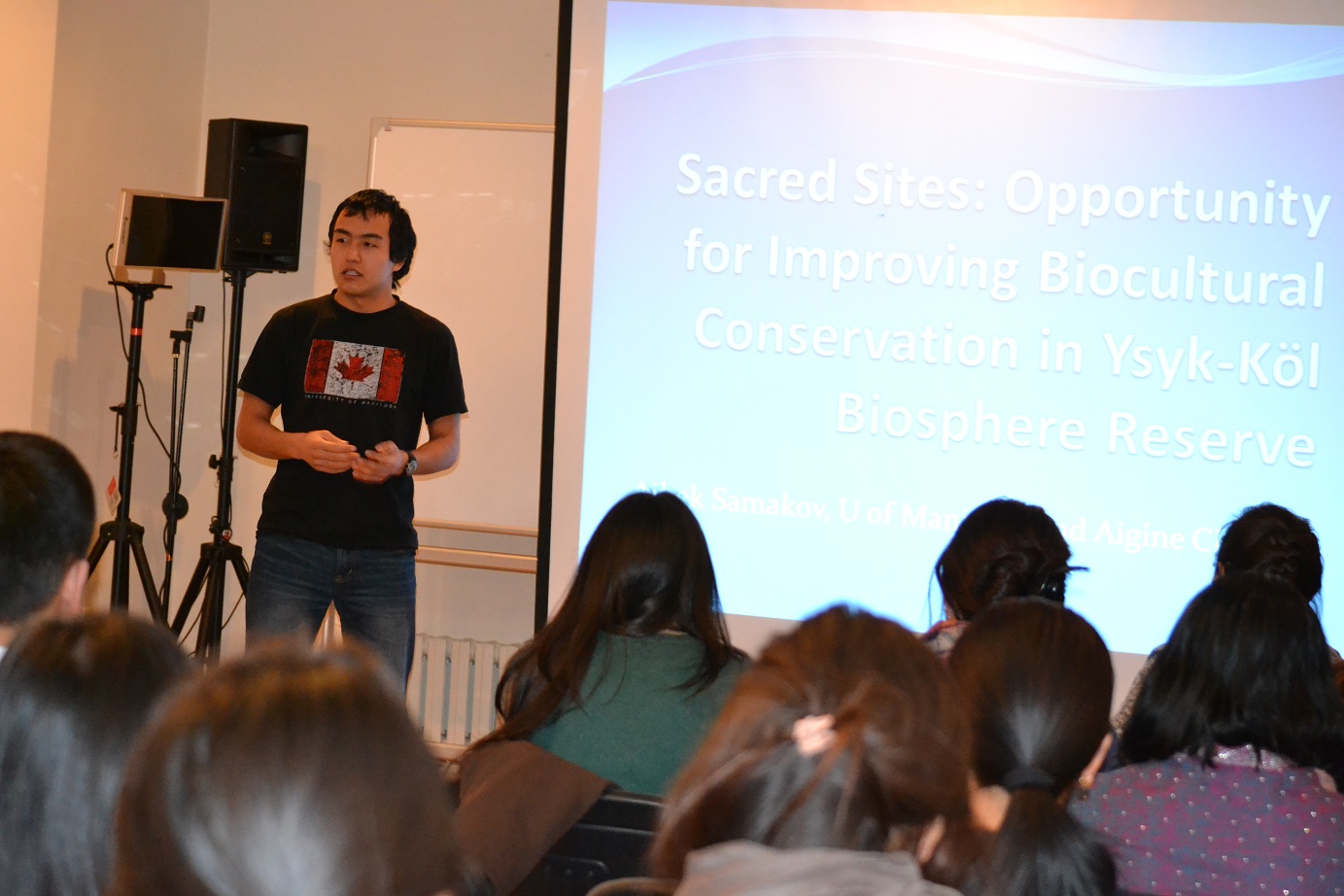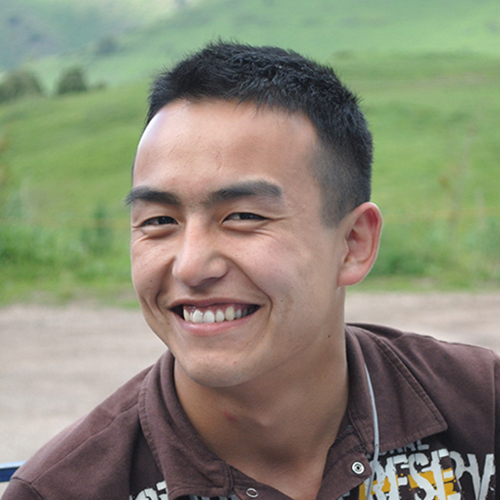
10 Feb Research results on sacred sites presented at the University of Central Asia
Aibek Samakov, a graduate of the University of Manitoba, presented the results of his research on sacred sites in Ysyk-Köl Biosphere Reserve on January 28, 2016 at the University of Central Asia. Sacred sites in Ysyk-Köl area of Kyrgyzstan represent areas of land and bodies of water which are spiritually and culturally meaningful for local people. The present study mapped about 130 sacred sites, which are conserved-through-use by local communities and represent a traditional model of conservation. The entire territory of Ysyk-Köl region is a formal protected area as a UNESCO Biosphere Reserve. Thus, sacred sites, as traditional model of community conserved area, are embedded in the formal government-run Biosphere Reserve.
The study scrutinized how these two models of conservation (sacred sites and the Biosphere Reserve) co-exist in the same territory and interact with each other. Results indicate that these two models are parallel. However, recognition of sacred sites can improve formal conservation by:
- Providing a complementary culture-based set of incentives for conservation;
- Fostering a biocultural approach; and
- Serving as a communication hub for YKBR managers and local communities.
The author thanks Dr. Fikret Berkes and Dr. Gulnara Aitpaeva for providing wise guidance during the research as well as every person and institution that facilitated the research. This study was funded by the Community Conservation Research Network (CCRN) and the Center for Community-based Resource Management (Natural Resources Institute, University of Manitoba). Central Asian Hub of Mountain Partnership and Aigine Cultural Research Center provided the platform and logistical support for making this presentation.
Featured Image: Aibek Samakov presenting his research results at the University of Central Asia. Photo credit: Alma Karsymbek (Central Asian Hub of Mountain Partnership).



